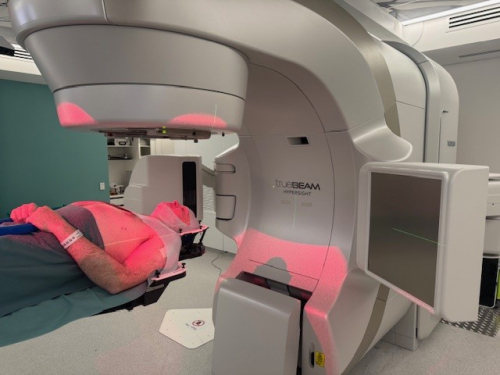New clinic helping people with functional seizures

When Natalie started experiencing involuntary jerks in 2020, she had no idea the journey she had begun. Following a tonic-clonic seizure and a misdiagnosis of epilepsy, Natalie eventually discovered she had functional neurological disorder (FND). Daily, she was experiencing clusters of jerks – about 50 at a time – and as a busy professional, Natalie felt her body was out of her control.
Natalie was referred to the Functional Seizure Clinic at The Alfred, which is the brainchild of neuropsychiatrist Toby Winton-Brown, and which has now grown to include neurologists psychiatrists neuropsychologists and nursing staff.
Dr Winton-Brown had seen many patients with functional seizures, and quickly realised they had nowhere to go in the public system.
He established the clinic – the first and only one of its kind in Australia - to offer patients a holistic approach to managing Functional Seizures, with specialised care including psychiatric treatment, nutrition and exercise advice. An audit of the first year of the functional seizure clinic at The Alfred has shown 88 per cent of patients surveyed saw symptoms stabilise or improve following their treatment at the clinic.
For Natalie, the change has been life-altering – these days, she rarely experiences any involuntary jerks.
“I didn’t realise how much of a difference it was going to make,” she said.
“Participating in the clinic genuinely changed my day-to-day life and how I was functioning.”
Dr Winton-Brown said often, functional seizures relate to past psychological trauma, and were the body’s response to a sudden triggering of brain network dysfunction.
“Treatment can help build awareness of when the seizures are coming, what might be triggering them, and how to control them” he said.
“Over time, we work with patients to find and treat underlying contributing factors which can include PTSD, family conflict or other neurological conditions. We teach patients ways to regulate their responses, which can prevent the seizures.”
Natalie said participating in the clinic wasn’t easy, but she felt the treatment and discussions were tailored to her. As her positive attitude and trust in the process grew, she began to see significant success. She has learned about nutrition and supplements to support brain health, and the types of exercise that help her combat FND.
“It is an ongoing process to keep these involuntary jerks managed and there is no quick fix, but with the help of the team and implementing the learnings from this process, I know that it is not going to define me anymore,” she said.
“I am more than my condition and the Alfred has helped me really believe that it's possible for life to go on.”


